9 Proven Hacks to be More Productive in Less Time
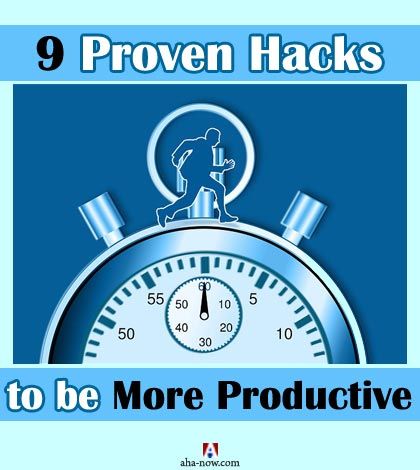
Table of Contents
Many people struggle with and are clueless about how to be more productive. The way to increase productivity has a science behind it and there’s an art for implementing it in your life. Being more productive, you increase your changes of being happier and successful. Read this post to clear your conceptions of productivity and know the techniques to achieve your goals, be 10X times more productive and improve your quality of life in all aspects. ~ Ed.
Okay, a show of hands. How many agree with the following?
Today, productivity is synonymous with being busy. It’s considered to be directly proportional to the number of hours we work.
Our culture prides itself on working long hours. Hence, to be more productive, we must work longer.
Is this true? Do you agree?
Isn’t this what you see around you every day? To fit in, you must embrace this culture. You must add to the noise. You don’t have a choice.
And yet, despite working long hours, despite ticking all items off your to-do list, you feel a nagging dissatisfaction.
You simply don’t get enough time to do what’s important. You don’t feel productive enough.
Does this happen with you?
Don’t worry; you’re not alone. Turns out, we’ve forgotten the true meaning of productivity in today’s analog world.
How to be More Productive in the True Sense
“Productivity,” according to bestselling author Charles Duhigg, “is about getting things done without sacrificing everything we care about along the way.”
But today, distinguishing between urgent and important is like separating noodles from spaghetti. We make heroes out of people who sacrifice more, who ‘hustle.’
Is it possible today to sacrifice less and yet achieve more?
Yes. If you look closely, you’ll find truly productive people who are doing everything you want to while sacrificing less. Where do they find the time? How do they transform into high-level achievers?
More importantly, can you ever be like them?
The answer again is a reassuring “yes.” Being genuinely productive is easier than it looks. All you need is some self-discipline, and to understand a law known only to the insiders of the productivity circle.
Ready to know the insider’s secret which will change your life?
The Law Which Makes 10X Productivity Possible
In 1955, British historian and author Cyril Northcote Parkinson observed what was later declared as Parkinson’s Law:
“Work expands so as to fill the time available for its completion.”
Haven’t you noticed this? The more time you have to complete the task, the more gross it appears. Eventually, it becomes a mental monster. Then, you miss deadlines, compromise with the quality, and nobody is happy.
Achievers understand this. And they take action to counter it. They set stringent deadlines and pursue important tasks till they accomplish their missions.
Here is how they do it, and how you can be more productive, in the workplace and life.
9 Proven Productivity Improvement Techniques
As stated before, being genuinely productive is easier than it looks. Parkinson’s Law can help you experience real satisfaction and fulfillment by pursuing what you want to do.
As promised, here are the techniques:
1. Ask Yourself ‘Why.’
Productive people possess a messianic sense of purpose. Use this to increase your ability to complete what you consider important.
Ask yourself why you want to do something. Is it because somebody wants you to? Or is it because you want to do it? Choose what falls under the latter. The more you do what you love, the more motivated you’ll be to do it.
Your ‘why’ will keep you going when you want to give up. Over time, it will also make you an expert in the next point.
2. Say “No.”
Most important things get ignored because we fail miserably at saying ‘no.’ We’re afraid of being judged by others, of missing out on something good, of being left alone.
As a result, we keep saying yes to people and tasks which pull us away from ourselves. In Tim Ferriss’s words, “we keep inventing things to do to avoid the important.”
Productive people, on the other hand, spend 80 percent time working on what’s important to them. They say no to everything else.
Be assertive and guilt-free when you deny others’ requests. Research shows that people are not as offended when you say ‘no’ as you think.
As for tasks, remember Derek Sivers’ quote: “If you’re not saying “HELL YEAH!” about something, say ‘no.’” Secure your oxygen mask first. You can only help others when you don’t neglect your own needs.
3. Reduce Consumption
Consumption is a task we invent to stay away from what’s important. News, social media, mainstream media, email, parties, and more, place us in the comfort zone. They let us judge others rather than being judged for what we create.
Judging is easy. Creating is difficult. Judging makes us feel empowered. Creating makes us afraid. But creating also makes us more productive.
The more you consume, the less you do. Hence, reduce consumption. Don’t stop it altogether, but don’t waste time on what’s useless.
Within a week, you’ll witness a 10X jump in your output. Plus, you’ll be happier and motivated for the right reasons because you’ll stay away from the mindless clutter out there.
4. Chunking
Unless you’re lonely or trying to avoid work, consumption is a distraction. Yet, it’s unavoidable. Phone calls, emails, and social media banter – you’ll indulge lest you become a recluse.
But these distractions are a huge cause of your low productivity. According to research, it takes up to 23 minutes to return to a state of focus after being distracted. Count the times you’re distracted and add the numbers. Now tell me you aren’t shocked.
So, chunk your work. Chunking is a proven technique to increase output tremendously and be more productive.
Club similar tasks and do them together. For instance, allot a chunk of time every day for deep focused work. Separately chunk the tasks of making phone calls and checking emails. Don’t engage in them when you do deep work.
Want to surf the web and social media? Allot time for it (but not too much). Enjoy helping people? Allot a specific time each week and spend it only helping them.
Rather than ‘sprinkling’ tasks – doing everything in short bursts at various times – start chunking. Experiments prove that over 80 percent people felt more energetic when they started ‘chunking.’
I practice chunking too – I check email just thrice a day, and I browse social media twice a day, for a total of thirty minutes. I keep the phone in another room when I do deep work. As a result, I consistently surpass deadlines and keep improving.
Chunk your time into dedicated blocks during each day. And during those blocks, follow the next step.
5. Work in Cycles
The popular Pomodoro technique is an effective chunking technique. For the uninitiated, it means working in cycles to maintain your productivity.
Work deeply for twenty-five minutes followed by a five-minute break. This is one Pomodoro cycle. Rinse, repeat. Eight cycles like this and you’ll experience one hell of a productive day.
Gradually, increase your focused time from twenty-five minutes to forty-five. Eight Pomodoro cycles will give you almost three focused hours more each day. Imagine how much you can achieve with three extra hours!
6. Focus on Systems
Most people suck at being productive despite good intentions because they cannot sustain their effort. They try something but give up if it doesn’t work twice.
But this acid test is where productive people distinguish themselves. They persevere. They test and optimize the process. To discover your optimal process, you must focus on a system too.
Setting goals is good. It reminds you why you’re doing something. But it can overwhelm you too. For instance, a goal of writing a book within a year might appear so daunting that you might never start. But if you write just 300 words a day, you’ll write over 90,000 words in a year – equal to one and a half books.
Create systems which improve your efficiency and output. Experiment. Optimize them. Find out what works. Then stick to it.
7. Embrace Constraints
No restrictions make you work like a tortoise, believes Scott Belsky. To be productive, you must embrace constraints instead of running from them.
Leaving free space during the day is an effective constraint. Spend this time away from work and your phone. Invest it on other constructive pursuits. If you work for yourself, then schedule only mundane tasks after noon. Or do nothing at all. If you work for an organization, stop working hard after 3 PM.
When you impose constraints, you subconsciously avoid distractions. You’ve experienced this, haven’t you?
When an important deadline loomed over your head, you blocked the world and finished the assignment within the specified time. Felt awesome, didn’t it? You can experience the same feeling every day. Just embrace constraints for being more productive.
Meetings don’t count as work for me. So, when I attend meetings or chill out with friends, I count it as half a workday. On such days, I complete tasks like clockwork. But when I have the whole day to myself, I procrastinate and work slower than dial-up internet.
You do remember dial-up internet, right?
8. Hold Yourself Accountable
For achievers, the fear of not trying outweighs the fear of failing. Hence, they do what Jon Morrow suggests – they put a gun to their heads (figuratively).
Many people set Big Hairy Audacious Goals (BHAG), but fizzle out due to lack of accountability. Staying accountable is an essential part of the productivity journey.
Accountability keeps you on track and enables measurement. And what gets measured gets managed.
Make yourself accountable to achieve short (and long) term goals. It’ll keep you going. If you can’t put a gun to your head, hand it over to someone trustworthy and ask them to do it to help you be more productive.
9. Create Mind Space
Enviable productivity is possible only with calm, thinking mind. A cluttered mind will never let you focus on what’s important. Instead, it’ll jump from one task to another.
All productive people practice mindfulness every day. Emulate them. Spend ten minutes each day practicing mindfulness, preferably in the morning. Read spiritual books. They reinforce the significance of being calm and insulate your mind from the daily clutter.
Summing Up
Most people are capable of reaching their goals. But they don’t because they focus on too many things. As a result, they move a millimeter in each direction – hardly a formula for productivity.
Your life can be different. You can be more productive.
Imagine waking up each morning looking forward to the day, knowing you’ll pursue what you love.
Imagine becoming an indispensable asset to your workplace, with your work speaking for itself. And, imagine being buffered from despicable office politics. Imagine not feeling drained in the evenings, but enjoying them with family and friends.
Imagine doing everything important with minimum sacrifice. You’ll be known in your circles as one heck of an achiever, someone who can get stuff done. Somebody who knows how to be more productive.
I’m not selling you a pipe dream. You can achieve all this and more. Follow the techniques mentioned above and watch your quality of life exceed your own expectations.
Will it be difficult? Yes. Will it be worth it? You bet!
Over to you –
Which of the above hacks have you tried? Which ones will you try? And how do you stay productive? Do share your thoughts. I would love to hear from you.
Disclaimer: Though the views expressed are of the author’s own, this article has been checked for its authenticity of information and resource links provided for a better and deeper understanding of the subject matter. However, you're suggested to make your diligent research and consult subject experts to decide what is best for you. If you spot any factual errors, spelling, or grammatical mistakes in the article, please report at [email protected]. Thanks.






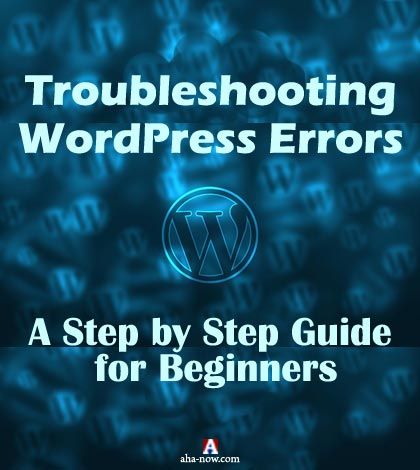

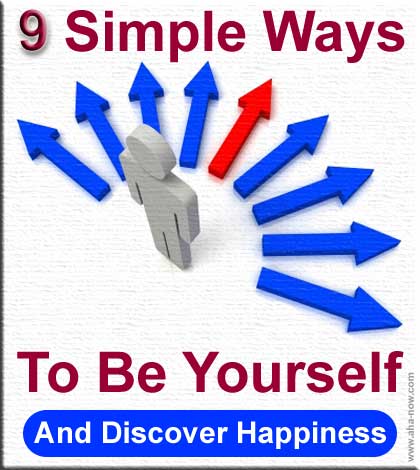
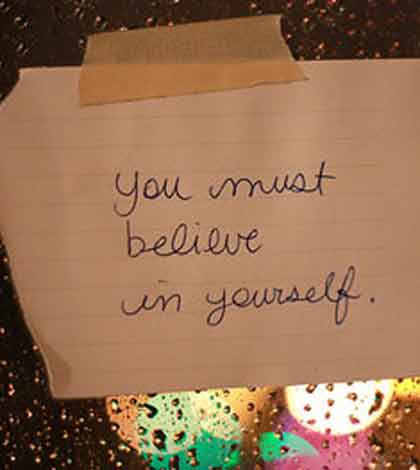
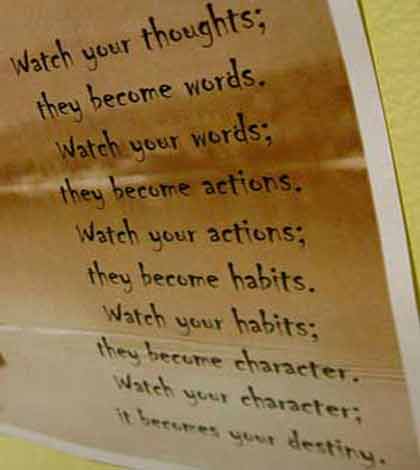
Hey Vishal
Thank you so much for sharing these great tips for enhancing productivity. Pomodoro Technique is quite familiar to me and I am following it from quite a time. But to be honest, I never completed 8 cycles continuously.
The Mind Space thing is also very practical. You have to create a calm space into the mind which ultimately helps you in balancing the things.
I always like to read such blog posts. Thank you once again
Saying NO isn’t easy and was something I had to learn the hard way, but we have to be protective of our time. If you answer the question “why” with a strong enough reason, saying “no” becomes far easier. It takes practice, however.
Excellent tips Vishal,
For me, working in cycles and saying no are very much relevant. Other tips are good as well.
Hi Harleena and Vishal,
I’ve actually started focusing on techniques to help me become more productive in my business.
It’s so easy to get pulled here and there. I’ve found that when I chunk my tasks, I get a lot more done and it’s also important to learn how to say no.
When I first started my blog, I was trying to do so much. I didn’t have a routine in place. I was working hard, but the truth is that I wasn’t getting a lot done.
Now I make it a point to do my important tasks that need to be done earliest in the morning. Since I am a morning person, I find that I work better in the morning.
Once those A tasks are done, then I’ll focus on the less important tasks.
Plus I don’t try to do too much in my business. I make it a point to actually take time off from my blog. I think it’s important to take time off from my blog. I have more energy when I take a break and then come back to it.
Thanks for sharing these tips, you can bet that I’ll be using them to help me stay productive in my business.
Have a great day 🙂
Susan
Hi Vishal,
Being too busy is another kind of lazyness. I am not talking about others, but I have observed myself and found that I was spending most of the time doing unnecessary tasks ans sometimes I am carried away with social media chats.
I knows the importance of being more productive. Its not just about money but it is about being in the business even when sleeping.
Thank you for sharing your 9 tips to be more productive. Worth reading.
Exceptionally useful and thorough post.
Thoughtfully, I am in absolute concurrence with you in regards to time administration and Setting objectives.
Making set pieces of time and attempting to complete particular errands appears to work for me. It’s only one all the more thing for me to do.
Thanks for your clean and precise writing.
Great post! This is that post i was looking for. You have explained all points in very brief details. Loved it. Thanks and keep sharing these kinds of stuff.
Glad you found it useful Manish. Cheers!
Hey Vishal,
Awesome article man! Everyday we waste our lots of time by doing useless things such checking FB timeline or tweeting. We don’t realize how slowly we are killing time.
While we can use that time to do some other thing our mind convince us in a ways that everything we do looks good but in reality we don’t get any benefit from that.
The points you have mentioned in the article is great. I loved all the points and totally agree with you.
One points which I would like to add is we need to do is don’t let our mind distract by foolish things.
Thanks for sharing this awesome post.
– Umesh Singh
Hi Umesh.
Indeed, we’ve got to befriend our mind instead of turning it into a master or slave. We must reduce giving into the myopic view our mind oft develops – where we fall in love with something we do, or get distracted by something which doesn’t yield good returns.
Thanks for this insightful comment.
Hi Vishal,
Great post. I’d like to add one more Hack. It’s the 80/20 rule. Vilfredo Pareto the Italian economist proposed that 20% of your efforts generate 80% of your results. Look at your daily activities. If a task or an activity doesn’t fall into the 20% category, then delay it, delegate it, or dump it.
I’ve been doing this and my productivity has soared.
Thanks again for your insightful post.
Steve
Hi Stephen.
Indeed, Pareto’s Law is a lifesaver. The more we identify the constructive 20%, the more we eliminate wasteful time. This especially helps in our understanding of what we should say no to, and what we must accept.
Thank you for the insightful comment, and timely reminder.
The Pomodoro Method has always been my life saver…when I implement it. I have to prepare and plan what I’m going to do during my pomodoros, otherwise that time just gets wasted. So planning is absolutely key for me in being productive.
But I love a lot of these thoughts here. I struggle with accountability, so maybe I need to pull the trigger and find someone else to “report to” instead of relying on myself.
Ah! Accountability! We all struggle with it Kim, especially if we don’t have the Sword of Damocles looming perilously close over our heads.
Indeed, handing the gun to someone else works. The problem arises when they themselves become less accountable with the task 😉
Cheers.
Hi Vishal,
A great read!
We always assume being busy is being productive, long hours is being productive. On the contrary, as you put it rightly, “getting things done without sacrificing everything we care about along the way” in a timely manner is being productive. Productivity takes us closer to our goals and also achieve work-life balance.
“Working in chunks” is a great idea, just like you I have friends and colleagues checking email just two/three times a day. And also in this era of cell phones and social media, working effectively for most of us has become impossible.
“Pomodoro technique” is new to me, will definitely try this chunking method to get all the things done within my working hours.
Well summed up, Ido. Couldn’t agree more.
Good luck with the Pomodoro technique. You can find apps online which work like 25-minute timers before the alarm goes off. Do let me know how it turns out for you.
Hey, Vishal!
An excellent article! I used to be guilty of spreading myself too thin, trying to do everything here and there and ending up not progressing at all.
I also had a hard time saying no, so I end up not doing anything productive, and each day felt like a drag.
Once I got rid of other things that weren’t part of my priority, I felt lighter.
Plus I’m also doing that “gun to your head” thing from Jon Morrow, and it makes me take my goals much more seriously.
Looking forward to more of your work, Vishal!
Talk soon,
Nicah
Thank you Nicah.
I still sometimes fall into the trap of spreading myself too thin or not being able to say no. Then it’s all about damage control, or telling myself, “when will you learn bro” 😉
The ‘gun to the head’ technique works like a charm.
Hi Vishal,
We all been created with free will and the ability to choose.
And most of the time I choose to be busy rather than productive.
With that being said I have to ask myself why a lot knowing on any given day I suffer from comparing.
I said all that to say this, to be productive one must know himself.
Chunking and working in cycles sounds like great advice.
After reading how they work what comes to mind is commitment and consisted.
These nine hacks are something I must implement in all areas of my life.
Thanks much!
Absolutely Vernon. There’s no wax on-wax off, one-size-fits-all technique in productivity. Some of us are morning people, others are night owls. Some of us work best after building momentum, others work best while building momentum…
Good luck with implementing these techniques. Do let me know how they work out for you.
Hey Vishay and Harleena,
I can honestly say that Parkinson’s Law actually works.
I’ve never heard of it, but I have implemented some of these techniques like chunking and goal setting which works quite well for me.
These suggestions work very well for solopreneurs who lead busy lives. If you work a full time job and have family, then using these strategies can help you get just as much done as someone who doesn’t have as much obligations.
I view being productive as working smart. When you can figure out a system where you can get more results working less so you can have more free time to yourself, then you’re definitely being productive.
One thing I have to work on is reduce consumption. I never thought that it could lead to judging others more so than creating, but I can definitely see how this can be.
Thanks for the share Vishay! Have a good one!
Thanks Sherman. You’re right. Productivity does mean working smart. Good luck with your initiatives to reduce consumption 🙂
One of my “lazy” productivity tricks is to step away from work and play a challenging game for about 20 minutes. For whatever reason it tunes my brain, gives me a break, and I come back refreshed.
That’s much more like it Tessa. Indulging in another interesting task when your brain seems overwhelmed was a technique Isaac Asimov followed often.
Parkinson’s Law:
“Work expands so as to fill the time available for its completion.”
THIS IS SO TRUE! Often, I have looked at a task and thought, “It’s going to take me for-e-ver to complete this!” Yet, in reality, it only took me about ten or fifteen minutes.
I’ve wasted so much time avoiding other tasks because of this faulty thinking!
I’ve since learned to stick to my To-Do lists and be productive! 🙂
Often, I have looked at a task and thought, “It’s going to take me for-e-ver to complete this!” Yet, in reality, it only took me about ten or fifteen minutes.
I know where you’re coming from, Lorraine. I end up there too, many times. Just a few weeks ago, I whined and complained because a task was taking me forever to finish. But when I sat in a cafe, ordered my favorite coffee and blocked the world out, I finished the task in 2 hours 20 minutes! Can you believe that? 🙂
Vishal, that’s awesome! I bet you felt so good after it was done, too!
I’ve finally gotten into a regular work schedule (I didn’t have one before!) and so now I am finding that I am much more productive. 🙂
Tasks no longer bother me! Sure, I don’t like some of them, but “work” is called “work” and not “fun” for a reason. 😉
True that, Lorraine 🙂
Hi Vishal and Harleena,
Recently I’ve been building the habit of meditating every morning after I wake up, not just when I “need it or feel like doing it.”
Fortunately, it kinda boosts my habit-building with other things as well, like doing first drafts that seem to make no sense.
Nice post. Busywork will always be a myth. Thank goodness for the internet there are places like this that spread the word.
Hey Ethan.
Glad to hear you’re making meditation a habit. It has astounding effects on every part of the brain. Do let me know how it works out for you in the long run.
Hi Vishal,
What Aha! post. I totally agree with you. I think saying ‘No’ is more important than others. We should show courage to accept right things and reject wrong things, at the very next moment. If not, it may affect us a lot including our confidence and productivity.
Thank you very much for the writing.
Have a nice time ahead.
Aha! Thanks for the compliment Manoj.
Yes, saying ‘no’ is important. But what we say ‘no’ to is equally important, else we might end up declining something which will contribute massively to our improvement. Hence, we much check whether the task / request aligns with our goals, and develop a system for the same.
Thank you for dropping by.
Hey Vishal,
It’s the time where people are too busy with their corporate life and forget about what can be done with it.
To be more productive, everyone should divide their work into the chunks, you can’t accomplish the task in a bundle.
Consistency is what people need. Many people procrastinate just because they don’t feel like working.
Saying “NO” is the biggest thing to adapt. I know many who just keep their inner voice inside and bear the pain of being unproductive.
An informative post indeed.
~Ravi
Thanks Ravi. I agree, consistency and chunking tasks instead of doing too many things at once is essential to enhance productivity.
Couldn’t agree more with you about people who suppress their inner voice and bear pain. Until a few years ago, I’ve been one of them.
Thanks for dropping by.
These are great productivity tips! My big productivity tip to share is to take a break and get some rest.
It took me a long time to learn, but I finally got there and realized that SLEEP and REST are required for productivity. I thought I was pushing myself to do better by working long hours, but long term it was destroying my health overall – serious to the point my doctor insisted I take time off or he would hospitalize me and force it.
After getting into a cycle of getting better sleep and actually being well rested, I often find I get more work done and it ends being of a better quality than if I had pushed through those crazy long hours the way I used to.
Those are great points Loretta. Shawn Blanc writes that he’s created work cycles where he works 6 weeks, keeps 1 week as a buffer and takes a week off. While not all of us can enjoy a luxury like that, sleep and rest have scientifically been proven as important factors in boosting productivity and longevity of life.
Thank you for bringing these points to light.
Hi Vishal
It is the nature of people to get more in lesser time. So the topic is quite attractive and its contents are highly valuable.
The first point impressed me a lot; doing anything without any purpose means you are just doing a formality and then lamenting on not being productive is a big folly.
I read somewhere that more than half of the people in every society are least productive that’s why they just try to outperform by hitting the others productivity and that creates a lot of mess.
The best way is to follow patience and keep doing everything that can enhance your performance at every level.
Many thanks for sharing.
Thank you for sharing that perspective about least productive people in society, Mi Muba. I learned something new from you.
Indeed, the best way is the be patient with oneself, and just try improving 1% every day. The compounded effect over a month (and a year) will be astronomical.
Cheers.
Hello, Vishal!
And great to see you on Harleena’s place; congratulations! 🙂
I think… Why would I disagree with all these 9 hacks to bump up my productivity?
I am the no-productive guy and want to become a good writer (online)… And being non-productive is killing me.
It is like I am working all the way to my goals then skipping all of them the next day.
Yes, so many things do add up in such situation but as long as I have a goal for myself to turn me into that, why the heck should I act like the non-productive person?
The first thing that I need to get rid of is the “consumption”.
I have som many things open up on the screen while working and they all are distractful. See I am typing this comment and my eyes are glued to the tab where my inbox is opened.
So, that’s the first thing I believe would make so much difference for me!
And thank you for all of these great hacks, I am gonna check ’em deeply and evaluate myself as to how I am doing.
Thank you!
~ Adeel
Glad to hear that Adeel. Awareness is the first step towards improvement. Now that you’re aware that consumption takes up a lot of your time, you’ll overcome it soon enough. All you need is the determination to prioritize writing.
I suffer from the same consumption problem as you. You see, the mind is funny. It prefers instant gratification because it’s wired in our animal brain. But the more we train our mind to focus on the bigger picture, to focus on long term gains, the better we become at reducing distractions.
Hence, when you do deep, focused work, use apps / browser extensions to block distracting websites. And try checking email just thrice a day. It’ll be tough initially, but within a week of constantly practicing it, you’ll find a lot of mental peace and increased focus towards work.
Good luck, and thanks for sharing your thoughts.
Hi Harleena and Vishal,
It’s nice to meet you and congratulations on being featured on Aha!Now. 🙂
Thank you for sharing your 9 hacks to improve productivity. I’m actually going through a little slump right now. I was offline for a week due to a death in the family but getting back to my regular schedule has been tough this past week. It feels like I’m spinning my wheels and nothing is happening.
I do some of the things you mentioned here but what pulls me away the most is family obligations.
I adjusted to my new normal by breaking down my schedule and embrace constraints like you said. I comment on blogs and social media during the day and I work on my blog posts and reply to emails at night.
I do have to be better at working in cycles. I’m going to try what you suggested and hope it works.
Thanks again for the tips!
I hope you both have a great rest of the week!
Cori
Condolences for your loss Cori.
It’s nice to hear that you’ve found how you can optimize your schedule, and have successfully taken steps to do it. A good way to start working in cycles is using a stopwatch.
Would love to hear how things work out for you.
Now this is a lesson in productivity, I must say the point but I like the most and use of the most probably, is to just say no!
Often I can get pulled in many directions sometimes from others, and sometimes by myself social etc when I wander off down the “researching avenue”.
Nice to catch up with you guys again!
Thanks Tony. True, saying ‘no’ is the most effective, yet the toughest step for us to take. What do you do to overcome this challenge?
Excellent post covering all the real points on productivity.
Love the idea of cyclical chucking and forgetting the phone whilst working.
Prior to this post Isaac Corey’s rectangle of doing jobs according to priority was a favorite of mine.
This one in PDF form will definitely be an addition. I will share it with my working children as I do not teach in University anymore and of course share on social media.
Thank you Vishal and Harleena,
I may not be blogging but love reading your posts always.
That’s awesome Dr. Rao. Hope your working children find it useful. Thank you for sharing the note about Isaac Corey too. I’m off to check it out.
Hey awesome Aha! Now community,
It’s an honor to be published here, and to hang out with you awesome members who are pursuing more from life. Would love to read your views on the thoughts in the above post.
Have a lovely week 🙂
Hi Vishal,
Great content and I really love the tip on focusing on systems instead of goals.
I first found the tip from James Clear and Ramit also talks a lot about systems vs goals.
People think they can achieve a lot more by setting goals but it’s NOT true.
When you put goals, you’re focusing on the end results instead of the “process” and that’s the reason why 9 out of 10 people who put goals don’t succeed.
When you rather focus on systems (the journey aka process), such as writing 100 words a day and sticking to doing it every single day, you will most likely to achieve a lot more in the long run.
The key here is to setting up systems so small you can’t fail.
Thanks Harleena for publishing it and I’d love to read more blogging and productivity related stuff on your blog.
Keep rocking!